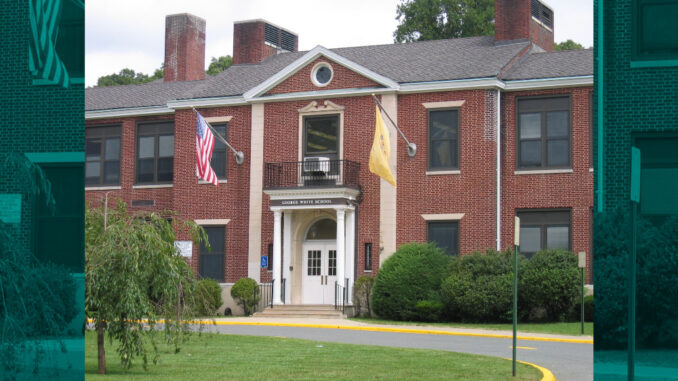
HILLSDALE—A district website on its $82.5 million referendum to replace the 100-year-old George G. White Middle School went live on Wednesday, Sept. 21.
Superintendent Robert Lombardy said in an email, “As many of you may know, the district has long discussed the aging George G. White Middle School. We have proposed a bond referendum to replace it with a newly built middle school across the street. We are excited to invite you to our new Road to Referendum website to learn more in the months leading up to the vote tentatively planned for March 14, 2023.”
Lombardy said, “The century-old building has been showing its age, with a distinct lack of space for our students and piecemeal infrastructure driven only by emergency fixes. Continuing to try and fix multiple smaller issues with lack of classrooms or antiquated HVAC systems will not address the long-term problems facing our middle school.”
He said, “Voter approval of the $82.5 million bond referendum would mean that the district could build a new, state-of-the-art school to address educational needs and to retain the value of Hillsdale Public Schools for the community. The proposed middle school would have larger classrooms more conducive to learning, opportunity and space for enhanced programming and student offerings, a better gymnasium, community recreation spaces and more.”
Lombardy said the state is completing its review of the referendum plan.
“After that, Hillsdale’s financial advisors will determine the “real feel” for the tax increase for the project. “Real feel” refers to the effect of the tax increase, considering that the district will finish paying off its previous debt from a voter-approved bond referendum. The website will provide updates for this number as the financial analysis is complete,” he wrote.
The site has pages on Why, Process, and FAQs (frequently asked questions). One question asks, Why would Hillsdale use funding from bonds instead of the regular property tax?
The district’s answer: “The regular property tax is designated for the operating budget, which means those taxes fund the everyday costs of running the entire school district. A small amount of that funding is used each year for capital improvements, and some of it is saved over several years for large projects. However, the cost facing Hillsdale to replace GW School is way too large to fit into that budget or to be saved over several years. Selling bonds provides money immediately and spreads the costs over many years.”
Board says replacement best option
In April, the district unveiled renovation options at lower cost for the middle school. Board members unanimously selected the estimated $82.5 million option to replace the school, citing the need for a modern facility and less interruption to students over a nearly two-year construction timetable.
At the July 18 school board meeting, trustees hired school bond referendum communications consultant Laura Bishop Communications of Cherry Hill for up to $55,000.
The bulk of Laura Bishop’s work will consist of creating and maintaining the referendum website, according to its contract.
Should the referendum pass it will cost the average homeowner an additional $100 monthly in taxes, or about $1,300 yearly over a 20-year bond term, school officials have said.
The consultant had previously been hired in Emerson, Cresskill, River Vale, and Montvale to work on local school referendum projects. All prior school referendum votes in the nearby towns were mostly approved.
At an April meeting where options to renovate or replace George G. White Middle School were discussed, plus a subsequent meeting with senior residents and a June 13 school board meeting where trustees approved a March 14, 2023 referendum, school officials were criticized for not adequately publicizing the middle school options and possible costs for taxpayers.
Some residents have criticized the board’s decision not to offer online broadcasts of its meetings for residents who cannot attend over disability, or wariness of Covid-19.
